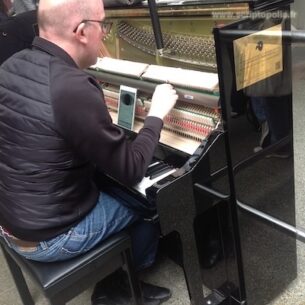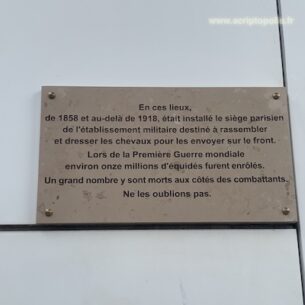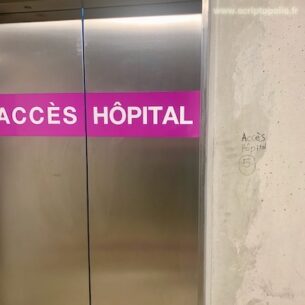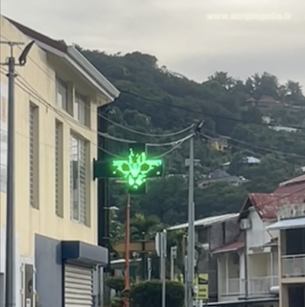Inverted commas
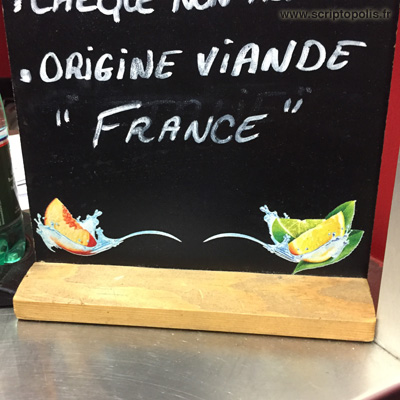
The things you can do with writings are quite impressive. And they show how wrong were those who tried to analyze written words as mere representations of speech. Inverted commas are a good exemple of that. Theses little marks can literally multiply enunciators, transforming everyone into an ventriloquist without any training.
But inverted commas may also be confusing. They certainly open doors and windows in sentences, but we’re not always able to distinguish what these openings are meant to point towards. In this restaurant, for instance, what shall we conclude when we notice the inverted commas surrounding the name France, after the words “meat’s origin”? There are so many possibilities. Two struck me while I was waiting for my burger. On one hand, it may enact a loose definition of what France is. The inverted commas could be a way to color the word France with something like “well almost”, or “in a broad sense”, the ambiguity of which readers would have to deal with. That’s a first option. On the other hand, these inverted commas could also foreground the fragility of the claim itself, showing that there’s only one way to reply to the question where does the meat you’re going to eat comes from? And I must say that it’s exactly what they did to me: they added to what I could have considered as an information (the beef comes from France) the aftertaste of a correct answer. Maybe too correct?



